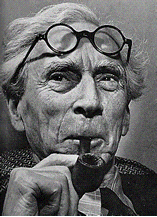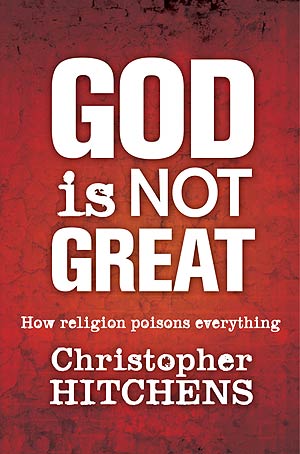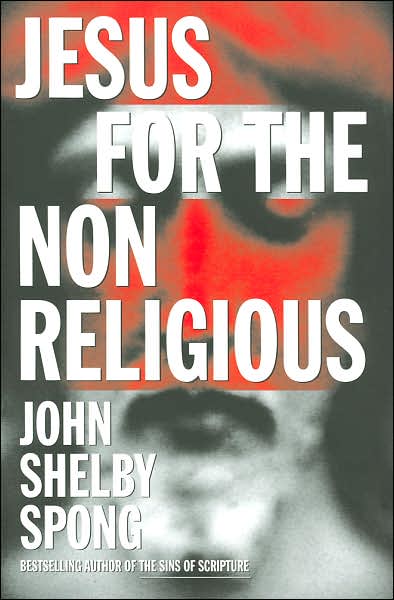 In the NY Times edition of May 31, 2007 Sam Brownback, a Republican senator from Kansas who is a candidate for the Presidency of the USA commented on a recent question about evolution that he and other Republican candidates were asked concerning their ‘belief’ in evolution. Brownback wrote in an op-ed piece entitled “What I Think About Evolution” as follows:
In the NY Times edition of May 31, 2007 Sam Brownback, a Republican senator from Kansas who is a candidate for the Presidency of the USA commented on a recent question about evolution that he and other Republican candidates were asked concerning their ‘belief’ in evolution. Brownback wrote in an op-ed piece entitled “What I Think About Evolution” as follows:In our sound-bite political culture, it is unrealistic to expect that every complicated issue will be addressed with the nuance or subtlety it deserves. So I suppose I should not have been surprised earlier this month when, during the first Republican presidential debate, the candidates on stage were asked to raise their hands if they did not “believe” in evolution. As one of those who raised his hand, I think it would be helpful to discuss the issue in a bit more detail and with the seriousness it demands.
The premise behind the question seems to be that if one does not unhesitatingly assert belief in evolution, then one must necessarily believe that God created the world and everything in it in six 24-hour days. But limiting this question to a stark choice between evolution and creationism does a disservice to the complexity of the interaction between science, faith and reason. The heart of the issue is that we cannot drive a wedge between faith and reason. I believe wholeheartedly that there cannot be any contradiction between the two. The scientific method, based on reason, seeks to discover truths about the nature of the created order and how it operates, whereas faith deals with spiritual truths. The truths of science and faith are complementary: they deal with very different questions, but they do not contradict each other because the spiritual order and the material order were created by the same God.
People of faith should be rational, using the gift of reason that God has given us. At the same time, reason itself cannot answer every question. Faith seeks to purify reason so that we might be able to see more clearly, not less. Faith supplements the scientific method by providing an understanding of values, meaning and purpose. More than that, faith — not science — can help us understand the breadth of human suffering or the depth of human love. Faith and science should go together, not be driven apart.
The question of evolution goes to the heart of this issue. If belief in evolution means simply assenting to microevolution, small changes over time within a species, I am happy to say, as I have in the past, that I believe it to be true. If, on the other hand, it means assenting to an exclusively materialistic, deterministic vision of the world that holds no place for a guiding intelligence, then I reject it. There is no one single theory of evolution, as proponents of punctuated equilibrium and classical Darwinism continue to feud today. Many questions raised by evolutionary theory — like whether man has a unique place in the world or is merely the chance product of random mutations — go beyond empirical science and are better addressed in the realm of philosophy or theology.
The most passionate advocates of evolutionary theory offer a vision of man as a kind of historical accident. That being the case, many believers — myself included — reject arguments for evolution that dismiss the possibility of divine causality. Ultimately, on the question of the origins of the universe, I am happy to let the facts speak for themselves. There are aspects of evolutionary biology that reveal a great deal about the nature of the world, like the small changes that take place within a species. Yet I believe, as do many biologists and people of faith, that the process of creation — and indeed life today — is sustained by the hand of God in a manner known fully only to him. It does not strike me as anti-science or anti-reason to question the philosophical presuppositions behind theories offered by scientists who, in excluding the possibility of design or purpose, venture far beyond their realm of empirical science.
Biologists will have their debates about man’s origins, but people of faith can also bring a great deal to the table. For this reason, I oppose the exclusion of either faith or reason from the discussion. An attempt by either to seek a monopoly on these questions would be wrong-headed. As science continues to explore the details of man’s origin, faith can do its part as well. The fundamental question for me is how these theories affect our understanding of the human person. The unique and special place of each and every person in creation is a fundamental truth that must be safeguarded. I am wary of any theory that seeks to undermine man’s essential dignity and unique and intended place in the cosmos. I firmly believe that each human person, regardless of circumstance, was willed into being and made for a purpose. While no stone should be left unturned in seeking to discover the nature of man’s origins, we can say with conviction that we know with certainty at least part of the outcome. Man was not an accident and reflects an image and likeness unique in the created order. Those aspects of evolutionary theory compatible with this truth are a welcome addition to human knowledge. Aspects of these theories that undermine this truth, however, should be firmly rejected as an atheistic theology posing as science.
Without hesitation, I am happy to raise my hand to that.
Are you happy to raise your hand to that?
Posted May 31, 2007

 In the
In the  Anthony Gottlieb writes in the May 21, 2007 issue of The New Yorker: The terrorist attacks (of 911) were carried out in the name of Islam, and they have been taken, by a string of best-selling books, to illustrate the fatal dangers of all religious faith. The first of these books was “The End of Faith,” by Sam Harris. Then came “Breaking the Spell: Religion as a Natural Phenomenon,” by Daniel Dennett, a philosopher at Tufts University, who has written popular books on the science of consciousness and on Darwin. Next was “
Anthony Gottlieb writes in the May 21, 2007 issue of The New Yorker: The terrorist attacks (of 911) were carried out in the name of Islam, and they have been taken, by a string of best-selling books, to illustrate the fatal dangers of all religious faith. The first of these books was “The End of Faith,” by Sam Harris. Then came “Breaking the Spell: Religion as a Natural Phenomenon,” by Daniel Dennett, a philosopher at Tufts University, who has written popular books on the science of consciousness and on Darwin. Next was “ Not a Christian" and Sam Harris’s recent bestseller, "The End Of Faith", Christopher Hitchens makes the ultimate case against religion. With eloquent clarity, Hitchens frames the argument for a more secular life based on science and reason, in which hell is replaced by the Hubble Telescope’s awesome view of the universe, and Moses and the burning bush give way to the beauty and symmetry of the double helix.
Not a Christian" and Sam Harris’s recent bestseller, "The End Of Faith", Christopher Hitchens makes the ultimate case against religion. With eloquent clarity, Hitchens frames the argument for a more secular life based on science and reason, in which hell is replaced by the Hubble Telescope’s awesome view of the universe, and Moses and the burning bush give way to the beauty and symmetry of the double helix.  In the May 13, 2007 issue of the Post Chronicle John W. Lillpop writes that National Review's Katharine Jean Lopez asked Governor Romney, "Will an exposé on Mormon Christmas celebrations hurt you in the primaries?" Governor Romney replied, "This may sound strange to some, but my grandchildren will be eagerly awaiting presents to be delivered to their homes by a bearded man in a red suit led by a pack of flying reindeer. There are differences between doctrines of churches. But the values at the core of the Christian faith, the Jewish faith and many other religions are very, very similar and it's that common basis that we have to support and find ability to draw people to rather than to point out the differences between our faiths."
In the May 13, 2007 issue of the Post Chronicle John W. Lillpop writes that National Review's Katharine Jean Lopez asked Governor Romney, "Will an exposé on Mormon Christmas celebrations hurt you in the primaries?" Governor Romney replied, "This may sound strange to some, but my grandchildren will be eagerly awaiting presents to be delivered to their homes by a bearded man in a red suit led by a pack of flying reindeer. There are differences between doctrines of churches. But the values at the core of the Christian faith, the Jewish faith and many other religions are very, very similar and it's that common basis that we have to support and find ability to draw people to rather than to point out the differences between our faiths." host
host  Writing from his prison cell in Nazi Germany in 1945 Dietrich Bonhoeffer, a young German theologian, sketched a vision of what he called "Religionless Christianity." In this book, John Shelby Spong puts flesh onto the bare bones of Bonhoeffer's radical thought. The result is a strikingly new and different portrait of Jesus of Nazareth, a Jesus for the non-religious. Spong challenges much of the traditional understanding, from the tale of Jesus' miraculous birth to the account of his cosmic ascension into the sky. He questions the historicity of the ideas that Jesus was born in Bethlehem, that he had twelve disciples, or that the miracle stories were ever meant to be descriptions of supernatural events. He also speaks directly to those critics of Christianity who call
Writing from his prison cell in Nazi Germany in 1945 Dietrich Bonhoeffer, a young German theologian, sketched a vision of what he called "Religionless Christianity." In this book, John Shelby Spong puts flesh onto the bare bones of Bonhoeffer's radical thought. The result is a strikingly new and different portrait of Jesus of Nazareth, a Jesus for the non-religious. Spong challenges much of the traditional understanding, from the tale of Jesus' miraculous birth to the account of his cosmic ascension into the sky. He questions the historicity of the ideas that Jesus was born in Bethlehem, that he had twelve disciples, or that the miracle stories were ever meant to be descriptions of supernatural events. He also speaks directly to those critics of Christianity who call  however, we can still get at the historical origin of these myths by returning to Jesus' humanity, especially his Jewishness.
however, we can still get at the historical origin of these myths by returning to Jesus' humanity, especially his Jewishness. 